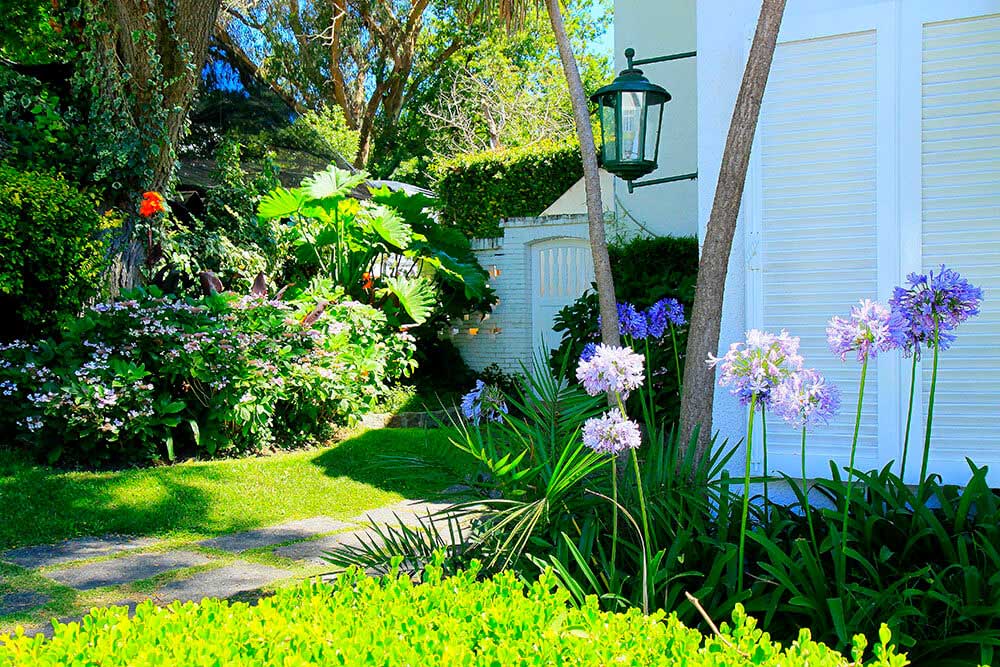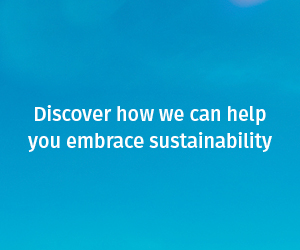How to grow a greener garden

Sustainable gardening helps to reduce landfill, decrease the amount of chemicals ending up in waterways, conserve water and provide food and habitat for native wildlife.
Whether you're just getting started or have a well-established garden, adding sustainable elements to your garden means less work, less cost and more time to enjoy.
Take advantage of breezes and shade
Designing your garden to make the most of cooling breezes and provide shade can protect your home from the summer sun.
Shade trees are a natural way to reduce the heat absorbed through windows and rooftops, which can cut cooling costs. A medium-sized shade tree (less than 7m) planted on the western side of a single-storey home can reduce summer cooling energy needs by 17%.
Trees also make great privacy screens, but be sure to plant where they will not block cooling summer breezes.
Layer upon layer
Creating a layered garden with trees, shrubs, grasses and ground cover creates a multi-storey home for a variety of birds, butterflies and other native wildlife.
The more layers you have, the more biodiversity your garden will support.
Layers can also supress weeds and reduce the amount of water needed to keep your garden thriving during the summer months.
Think native first
Gardening with native plants improves the environment and helps create a healthy ecosystem for local wildlife.
As native plants are adapted to the local environment, they generally need less water and maintenance than exotic varieties. Natives are also cheaper and easier to grow.
Visit one of your local nurseries that specialises in native plants for more good advice on plant selection.
Visit Native Plants Queensland for great advice on growing native plants in your part of the state as well as attracting butterflies, birds and even frogs to your garden.
The Brisbane City Council's Free Native Plants program offers Brisbane ratepayers, schools and community groups two free native plants per year. The native species provided through the program help grow Brisbane's urban forest and support local wildlife.
GIY (grow it yourself)
Growing your own food is the best way to ensure a supply of fresh and healthy produce for your family's table - it's also a great feeling to eat something you've grown yourself.
Growing even a small amount of your own food can make a difference to your budget and the environment, reducing greenhouse gasses by up to 25% and using one fifth the amount of water of a commercial operation.
You don't even need a garden to grow produce as many varieties of fruit, vegetables and herbs will grow will in a pot on a balcony or a sunny windowsill.
The information in this article has been prepared for general information purposes only and is not intended as legal advice or specific advice to any particular person. Any advice contained in the document is general advice, not intended as legal advice or professional advice and does not take into account any person’s particular circumstances. Before acting on anything based on this advice you should consider its appropriateness to you, having regard to your objectives and needs.
Related topics
Things to note
The information in this article has been prepared for general information purposes only and is not intended as legal advice or specific advice to any particular person. Any advice contained in the document is general advice, not intended as legal advice or professional advice and does not take into account any person’s particular circumstances. Before acting on anything based on this advice you should consider its appropriateness to you, having regard to your objectives and needs.
Insurance Products (excluding Travel Insurance) are issued by RACQ Insurance Limited ABN 50 009 704 152 (RACQI) and arranged by its agent, RACQ Distribution Services Pty Ltd (RDS) ABN 35 116 361 650, AFSL 567130 and RDS' authorised representatives (including RACQ Operations Pty Ltd ABN 80 009 663 414, AR No. 234978 (RACQO). Conditions, limits and exclusions apply. RDS and RACQO are in the RACQ group of companies. One of the companies in the RACQ group of companies has a minority shareholding in RACQI.
RDS and RACQO have not taken your personal objectives, circumstances or needs into account when preparing advice regarding insurance products and you will need to consider whether the advice is appropriate for you. Read the Product Disclosure Statement (PDS) and any applicable Supplementary PDS before making a purchase decision on this product. You can also access our Target Market Determinations on this website. RDS receives a commission from RACQI for the policies it arranges. RACQO receives fees paid for services it provides to RDS. Further details about remuneration are available on request prior to purchasing.
Banking and loan products issued by Members Banking Group Limited ABN 83 087 651 054 AFSL/Australian credit licence 241195 trading as RACQ Bank. Terms, conditions, fees, charges and lending policies apply. This is general advice only and may not be right for you. This information does not take your personal objectives, circumstances or needs into account. Read the disclosure documents for your selected product or service, including the Financial Services Guide and the Terms and Conditions, and consider if appropriate for you before deciding.
Except for RACQ Bank, any RACQ entity referred to on this page is not an authorised deposit-taking institution for the purposes of the Banking Act 1959 (Cth). That entity’s obligations do not represent deposits or other liabilities of RACQ Bank. RACQ Bank does not guarantee or otherwise provide assurance in respect of the obligations of that entity, unless noted otherwise.
RACQ Bank subscribes to the Customer Owned Banking Code of Practice which establishes higher standards than the law requires. The Code reflects modern consumer expectations and developments in approaches to issues such as consumer vulnerability, guarantors, and supporting customers through financial hardship. Please read our Customer Owned Banking Code of Practice page for more information.
RACQ Operations Pty Ltd (ABN 80 009 663 414 AR 000234978) and Members Travel Group Pty Ltd (ABN 45 144 538 803 AR 000432492) are acting as an Authorised Representative of the issuer of the insurance, Tokio Marine & Nichido Fire Insurance Co., Ltd. (ABN 80 000 438 291 AFSL 246 548). Any advice set out above is general in nature only, and does not take into account your objectives, financial situation or needs. Before purchasing any travel products, please consider the RACQ Travel Insurance Product Disclosure Statement (PDS) and the Target Market Determinations (TMDs) that apply to these products. Whilst the PDS outlines the Terms and Conditions of these products, the TMDs outline the intended class of customers that comprise the target market for these travel products. This will allow you to consider which products best suit your objectives, financial situation and needs and consider the products appropriateness to your personal circumstances. TMDs also outline matters involving the distribution and the review of these products. The PDS, Supplementary PDS and TMDs for each travel product can be found here.

